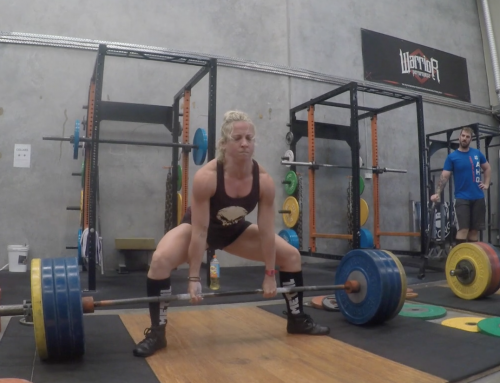How do i learn how to write programs? (this is a question i get asked regularly).
Well before you can even consider putting pin to paper there is a bunch of questions you need to ask first, this information is needed first so you can get an idea about the level of stress you can expose the individual too, its not going to give you the exact answer but it give you a starting point and an idea of what style of programming you can implement. Then you watch how they respond and overtime you can morph the correct volume/intensity/frequency for the individual (i find this can take up to 6-24months to figure this out, but even then this is not set in stone this will change over time as the person progresses).
Heres my list of questions –
gender
age
occupation
bodyweight
level of stress
work hours
amount of sleep per night
personal life
social life
drug use (recreation/ped/current/previous)
sports (current/previous)
training history
current training split
injuries
diet
how many days per week can you make it to the gym
previous years training history
program styles you feel you have had the most success with
Why?
Gender – females can tolerate more volume and frequency than males, females have less upper body mass on average.
Age – a 21yo is going to be able to tolerate more training than a 50yo, given there maybe exceptions but the rest of the questions will separate this.
Occupation – a removalist may need less volume and intensity or more frequent deloads than a accountant.
Bodyweight – a lighter individual (<80kg) can generally needs and can handle more volume than a bigger guy (>80kg)
Level of stress/work hours/social/personal life – all integrate, i.e; if the person owns their own business, has just had a baby, the wife has is highly stressed. you can pretty much guarantee the volume and intensity that can be tolerated at this point is going to be pretty low.
Same goes for the young 21yo that goes out both friday and saturday night to party by default even if they aren’t taking drugs or drinking alcohol they are going to be loosing roughly a nights sleep each week which will significantly impact recovery when compared to someone who doesn’t.
Drug use – again may tie in with above but someone who’s on anabolics is going to be able to ramp up intensity through out the program much quicker than a non-PED user, conversely someone using speed/coke/ectasy etc on the weekends is by default going to be under eating and under sleeping.
Sports/training history/current training split – a 25yo who competed in track and field since they were 13yo and has been lifting weights in an s&c program for roughly the same time is going to be able to tolerate a fuck tonne more volume, than Betsy who didn’t compete in any sports and has been doing crossfit for the past 6 months. also if the person plays a sport recreational or professionally its again going to affect how many days per week and volume can be done.
Diet – someone who has eaten quality food and drinks plenty of water/fluids will be able to tolerate more training than someone who misses half their meals, has poor protein consumption and the only water they see is in the shower.
Injuries – pretty self explanatory, you may have to work around something for a certain period of time. But also a common injuries is going to give an indicator of weak areas that need to be addressed with in the program. Generally the injury aries from poor quality of tissue i.e; adhesions/knots/tightness or inherent weakness of a muscle or group of muscles that never gets rectified due to high level of form breakdown.
How many days per week can you make it to the gym per week – 5days maybe optimal for the individual but their schedule may not allow for this and you will need to design a program that best suits what the individual can achieve.
Previous years training history – if they keep a training log this is great, as you can see trends within the data of how much volume and or intensity was used and how they responded to it i.e.; getting stronger or injured and sick.
Program styles you feel you have had the most success with – you ask enough questions and sometimes you will come up with valuable information, some people will be real intuitive about things they have noticed across years of training they just may not know what to do with the information or how to use it with in the context of a program. other times you will get a load of horse shit but thats for the you to decipher and figure out whats useful and whats not.
Stay tuned for part 2…





